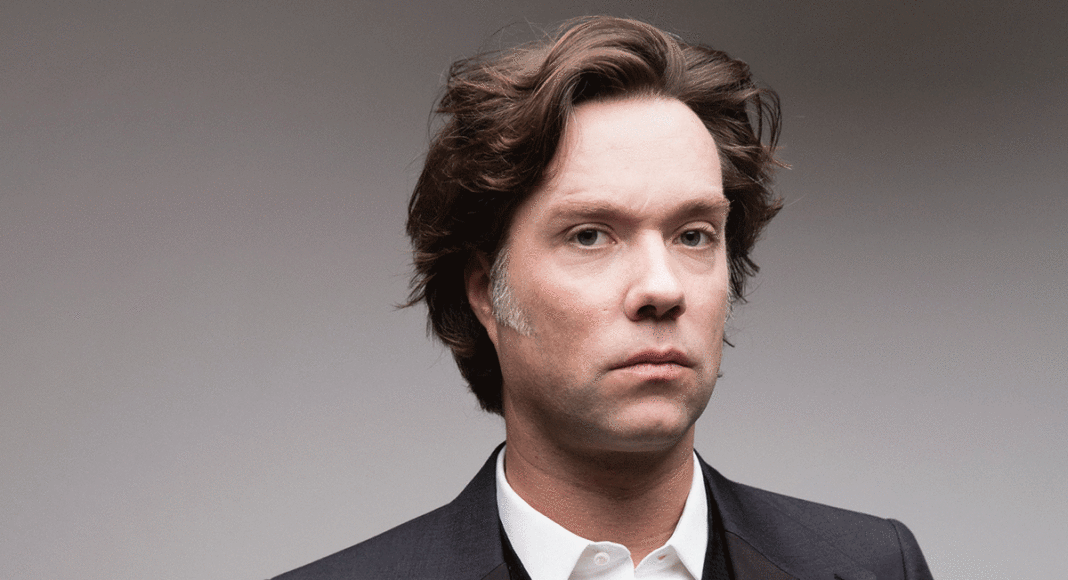For more than a decade, Rufus Wainwright has been breaking the mold.
Or rather, he’s been breaking lots of molds. Since 2007, Wainwright has recorded a live tribute to Judy Garland at Carnegie Hall, released an album of Shakespearean sonnets reinterpreted, and written two operas. The piano player has also celebrated 20 years in the industry and is getting ready to return to his singer/songwriter roots release his ninth studio album in 2020.
Wainwright says he looks forward to returning to “beautiful” Santa Cruz for his June 8 show at the Rio Theatre. “I’m always up there looking for the vampires,” referencing, of course, The Lost Boys. “I haven’t found them yet. Shout-out, though! Maybe they’ll show up this time.”
Writing two operas sounds like a big undertaking. Does that get easier?
RUFUS WAINWRIGHT: No, it gets harder and harder, but that’s why we love it. The point of writing operas for me is to challenge myself. With songwriting, I like to do the same, but there is a difference between when you’re younger and finding your voice and when you’ve had some experience, and things come a lot faster. Opera always forces me to push myself that little bit extra.
What kind of a challenge did homophobia pose when you were starting out as a gay musician in the 1990s?
I was so ambitious and so driven and crazed for success when I was very young that I just put blinders and did whatever I could to garner as much attention as possible. It obviously worked [laughs]. Looking back, I feel like there were opportunities I was not offered, and there was always a box they tried to put me in. Being an out gay musician was very unusual at that time, but I didn’t want to be labeled that, either. So I even had trouble with my gay community. I didn’t want to belong to anyone. Now with the Trump era, these issues have become far more relevant and far more treacherous. A lot of stuff is coming out of the woodwork against minorities of all kind. We’ve got to stick together now.
On Take All My Loves—9 Shakespeare sonnets, Carrie Fisher performed Sonnet 29. Did you know her?
She was a very, very good friend of mine and sadly passed away. Hollywood is nowhere near as fabulous as it was.
You wrote “Sword of Damocles” before the 2018 midterms. Can we expect more political songs?
We’ll see. I finished my new album, which is coming out in about a year in April. So it will be coming out in 2020. There’s no overtly political song on there. That being said, so much can happen between now and then. And sadly, it seems Republicans are ratcheting up as much as they can. I imagine a song or two could pop up.
How will your next album sound?
I worked with Mitchell Froom, who’s a great producer. We don’t have a name yet. It’s very much a return to my California roots. I recorded it in some of the great rooms of L.A. and great studios with great set players, young and old. I wanted to come back to L.A. and make a good old-fashioned songwriter record.
I’m not sure any pop music vocalist has stronger command of the vibrato than you do. Any tips on how I can up my karaoke game and incorporate that into my repertoire?
Vibrato is tricky with karaoke. I did karaoke in Japan once. They actually graded you, depending on how good the computer thought you did, and I did terribly. The karaoke did not like my voice, so I don’t know if you should follow my example. My big thing has always been listening to opera and going to see opera singers and productions. That genre can be a bit dull, but when it all comes together—the orchestra, the singer, and the story and the music—there’s nothing like it. And it lasts forever in your mind, and then translates into your voice, hopefully.
Rufus Wainwright performs at 8 p.m. on Saturday, June 8, at the Rio Theatre, 1103 Soquel Ave., Santa Cruz. $35 general/$55 Gold Circle. 423-8209.












